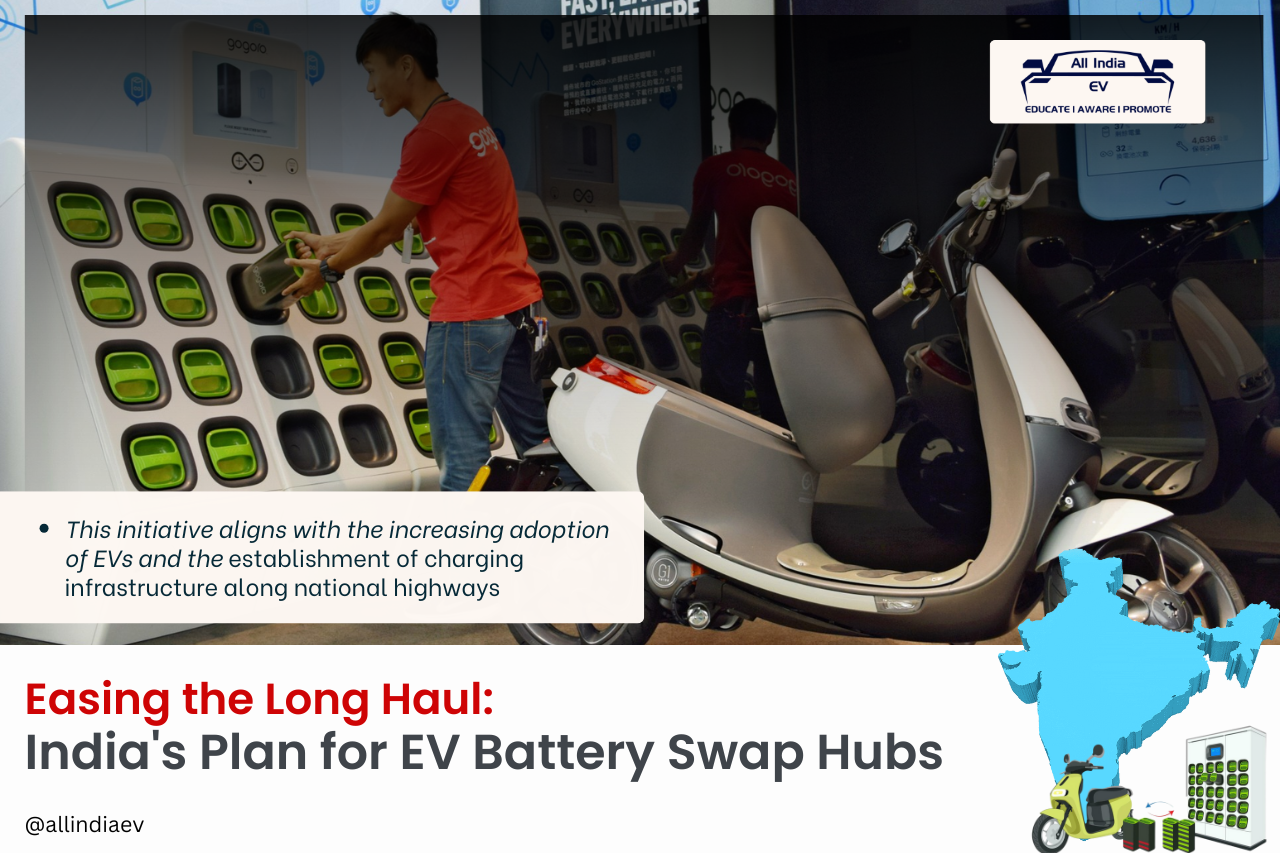
India’s plan for EV battery swap hubs aims to ease long-distance travel and boost electric mobility.
As India accelerates its transition to electric mobility, the government is now focusing on creating battery swapping stations along major national highways to support seamless long-distance EV travel. The move aims to minimize vehicle downtime and eliminate long charging waits, especially for electric buses, trucks, and two- and three-wheelers.
Subsidy Scheme in the Works for Battery Swapping Stations
The central government is planning to introduce subsidies for setting up battery swapping infrastructure, making it easier for EV users to exchange discharged batteries for fully charged ones in minutes. This initiative is expected to benefit commercial and fleet vehicles, helping them maintain operational efficiency on long-haul routes.
“The details of subsidies are being worked out, but the initial focus will be on heavy-duty and public mobility vehicles,” said a government official.
While battery swapping for electric cars is not immediately in the pipeline—due to the absence of standardized protocols—the government is actively working toward its inclusion in the near future.
High-Level Talks and Strategic Planning
The proposal was recently discussed at length in a high-level meeting involving officials from the Prime Minister’s Office and key ministries. The initiative is part of a broader strategy to address the growing number of EVs on Indian roads and ensure reliable, fast-charging alternatives for long-distance drivers.
EV Adoption Is Soaring
India’s electric vehicle ecosystem is expanding rapidly. According to official data, EVs now constitute 7.3% of all registered vehicles in the country in 2024–25, a massive jump from just 0.01% in 2014–15. Over 56.8 lakh EVs have been registered to date—and the numbers are expected to grow exponentially due to consistent government support and infrastructure expansion.
National Highways to Host Swapping and Charging Hubs
To complement this growth, the government has identified 61 national highway corridors, covering a total of 25,639 km, for the rollout of charging and battery swapping infrastructure. The key deployment plan includes:
- Charging/swapping stations every 100 km for buses and trucks
- Stations every 20 km for cars, on both sides of the corridor
- Battery swapping stations may either function as standalone centers or be co-located with EV public charging stations, offering flexible options to developers and users alike.
Priority Corridors Identified for Early Rollout
Several key national highway stretches have been marked for priority implementation of EV battery facilities, including:
- Delhi–Chandigarh
- Delhi–Jaipur
- Bengaluru–Mumbai
- Coimbatore–Bengaluru
- Goa–Pune
- Chennai–Bengaluru
- Kochi–Kanyakumari
- Prayagraj–Patna
- Guwahati–Jorhat
- Kharagpur–Visakhapatnam
A Vision for the Future of EV Mobility
Once the battery swapping protocols for cars are finalized and notified, experts believe it will revolutionize the Indian EV landscape, making electric vehicles a truly viable option for intercity and highway travel.This initiative marks another important step in India’s commitment to greener transport, reduced emissions, and building a future-ready EV infrastructure for all.










